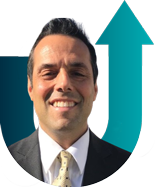Managing debt can feel overwhelming, especially when high interest rates and late fees make it difficult to gain traction. For some, debt settlement offers a path toward relief by reducing what you owe and creating a more manageable repayment plan. It’s not always the right fit for everyone, but is debt settlement a good idea for you? Here’s a breakdown of who it’s for and what to consider as you work toward better financial stability.
What Does Debt Settlement Mean?
If you’re wondering what happens when you do a debt settlement, it involves negotiating with creditors to pay less than the total amount owed. While some try on their own, many work with professional debt settlement companies experienced in these negotiations.
Settlement typically applies to unsecured debts like credit cards and medical bills. Instead of making regular payments, you or a debt relief company work toward an agreed-upon lump-sum settlement. During negotiations, you’ll likely make monthly payments to an account that funds the settlements once finalized.
Unlike debt consolidation, which combines multiple debts into one payment, settlement focuses on reducing balances. It also differs from bankruptcy, which can discharge certain debts but has long-term financial consequences.
Who Is Debt Settlement a Good Idea For?
Debt settlement may be helpful for people facing high unsecured debt, limited income or frequent collection calls. It’s often most effective for those who:
- Have a high amount of unsecured debt
- Have limited income that makes repayment difficult
- Are receiving ongoing collection calls or letters
- Are missing or making late payments
- Face potential collections or lawsuits
- Want to avoid bankruptcy but need structured help
For individuals in these situations, debt settlement programs are good because they can provide breathing room by reducing overall balances and simplifying repayment. However, they require patience, commitment and cooperation throughout the process.
When Is Debt Settlement a Good Idea?
Debt settlement can be a good idea if you have significant unsecured debt—usually more than $10,000—and are unable to pay it off with your existing income and expenses. Because settlements can temporarily hurt your credit, they may also be a preferred option for those who are already experiencing a drop in their credit score.
To be a good candidate, you should understand all of your debt relief options, feel that the pros outweigh the cons, have a steady income that can be used to pay off newly agreed-upon balances and be ready to commit to following the process from start to finish.
When Is Debt Settlement Not a Good Idea?
Debt settlement isn’t a good fit if your debts are secured, like mortgages or auto loans, or if you can handle payments through budgeting or consolidation. It’s also less suitable for those who can pay off debt quickly or need a high credit score for upcoming loans.
Settlement can lower balances, but it comes with trade-offs: temporary credit impacts, possible taxes on forgiven debt and potential collection activity during negotiations. Despite these challenges, debt settlement can still set the stage for stronger long-term financial health.
How to Evaluate If Debt Settlement Is Right for You
Before committing to debt settlement, review your debt types, income and financial goals. Are your debts mostly secured or unsecured? Do you have a steady income to make new regular payments? Are you willing to accept a temporary drop in your credit while negotiations take place and balances are paid off? Compare alternatives such as consolidation, credit counseling or balance transfer options to ensure there isn’t another path to relief that better matches your needs.
Choosing a Debt Settlement Company
If you decide debt settlement is the right fit, choose a company that’s licensed, transparent and focused on your goals. Look for a provider that explains all risks and fees upfront and helps you create a clear plan toward becoming debt-free.
There’s no one-size-fits-all solution for debt relief. With the right guidance, you can reduce stress, regain control and take meaningful steps toward financial freedom. See how United Settlement can help you start your path to relief today.

Steven Brachman is the lead content provider for UnitedSettlement.com. A graduate of the University of Michigan with a B.A. in Economics, Steven spent several years as a registered representative in the securities industry before moving on to equity research and trading. He is also an experienced test-prep professional and admissions consultant to aspiring graduate business school students. In his spare time, Steven enjoys writing, reading, travel, music and fantasy sports.





